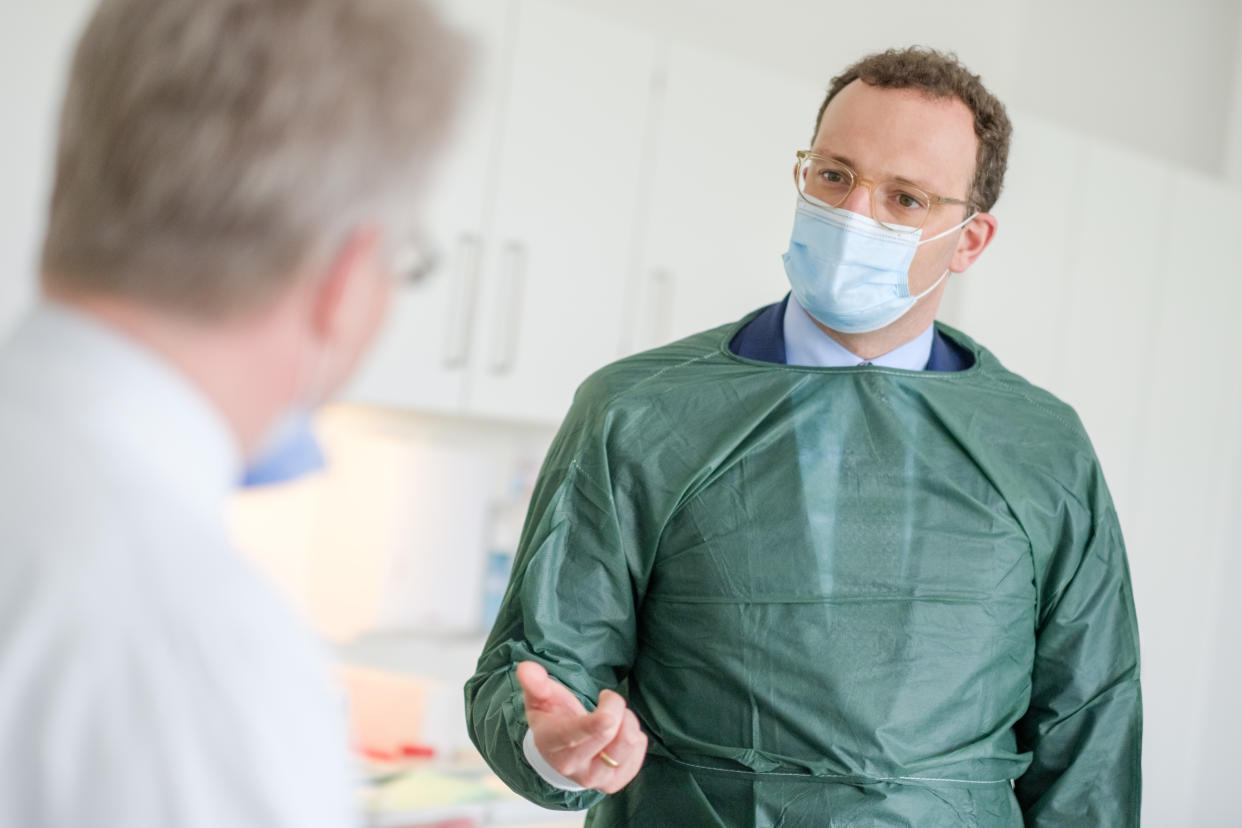Germany ‘sceptical’ about Russia’s COVID-19 vaccine claims

German health minister Jens Spahn said he is sceptical about Russia’s claim to have developed the “world’s first” coronavirus vaccine.
Russian president Vladimir Putin said on state television on Tuesday (11 August) that Russia had registered a vaccine against coronavirus, adding: “I know that it works quite effectively, it forms a stable immunity.”
Putin said that one of his daughters had already taken the vaccine, and had developed a slightly higher temperature after each dose, but “now feels well.”
Speaking to German public radio (DLF), Spahn stressed that being first with a vaccine was not important, but stressed the importance of creating a properly tested, proven and safe vaccine that can be trusted for use on millions, or even billions of people, through doing studies and making the results public.
“The problem is, we know very little because the Russian authorities are not very transparent,” Spahn said. “As of now at least, we know that there have been no phase 3 studies, that is, broad clinical trials with thousands of test subjects.”
READ MORE: BioNTech reports quarterly loss as it pushes ahead with COVID-19 vaccine trials
Spahn warned that it could be dangerous to begin vaccinating people too early as if it goes wrong it could kill people’s trust in vaccination.
“That's why I'm very sceptical about what's going on in Russia,” he said. “I would be happy if we had a good first vaccine, but based on what we know, and that is the basic problem, our Russian colleagues let us know very little, it has not been adequately tested there.”
The World Health Organisation said on Tuesday that it had been in contact with Russian authorities about the correct international standards for testing its vaccine.
Svetlana Zavidova, the executive director of the Association of Clinical Trials Organisations described the Russian announcement as “a Pandora’s Box.”
“Why are all corporations following the rules, but Russian ones aren’t? The rules for conducting clinical trials are written in blood. They can’t be violated,” Zavidova told Bloomberg.
A number of biotech and pharmaceutical companies have launched phase 3 clinical trials of their vaccine candidates, meaning they are being tested on tens of thousands of people in different locations. It is the final test before the regulatory approval stage.
Germany’s BioNTech (BNTX) in partnership with US pharma giant Pfizer (PFE), announced at the end of July that they were beginning to test their messenger RNA (m-RNA) vaccine on up to 30,000 people at 120 sites globally.
US-based Moderna also announced its late-stage m-RNA vaccine trials on 30,000 volunteers across the US at the end of last month.
Unlike traditional vaccines, which work by putting weak or inactivated doses of a virus or bacteria into the body to make the immune systems produce antibodies, a messenger RNA (ribonucleic acid) vaccine works by transmitting a genetic code to cells telling them produce a protein, which in turn activates the immune system.


